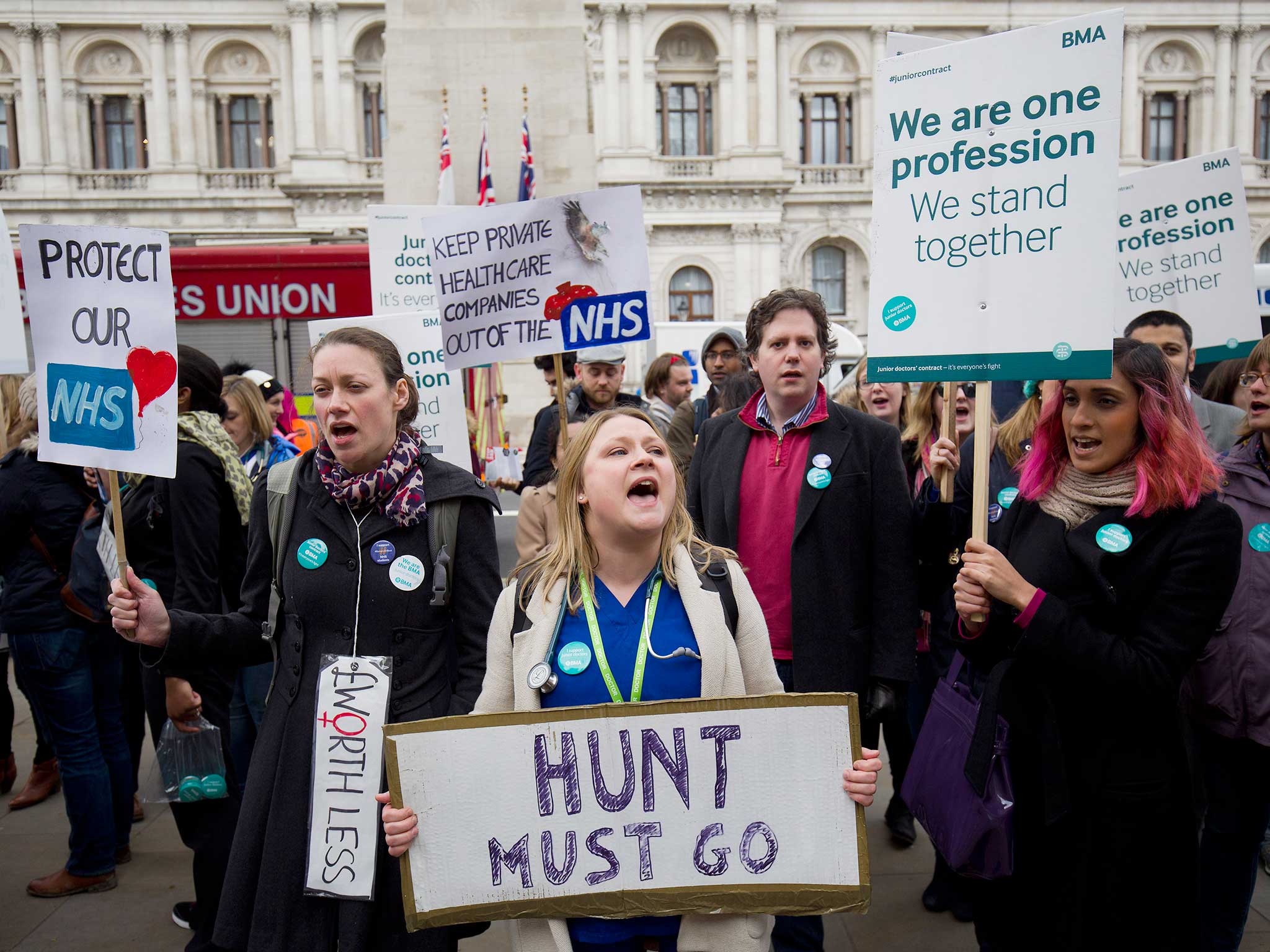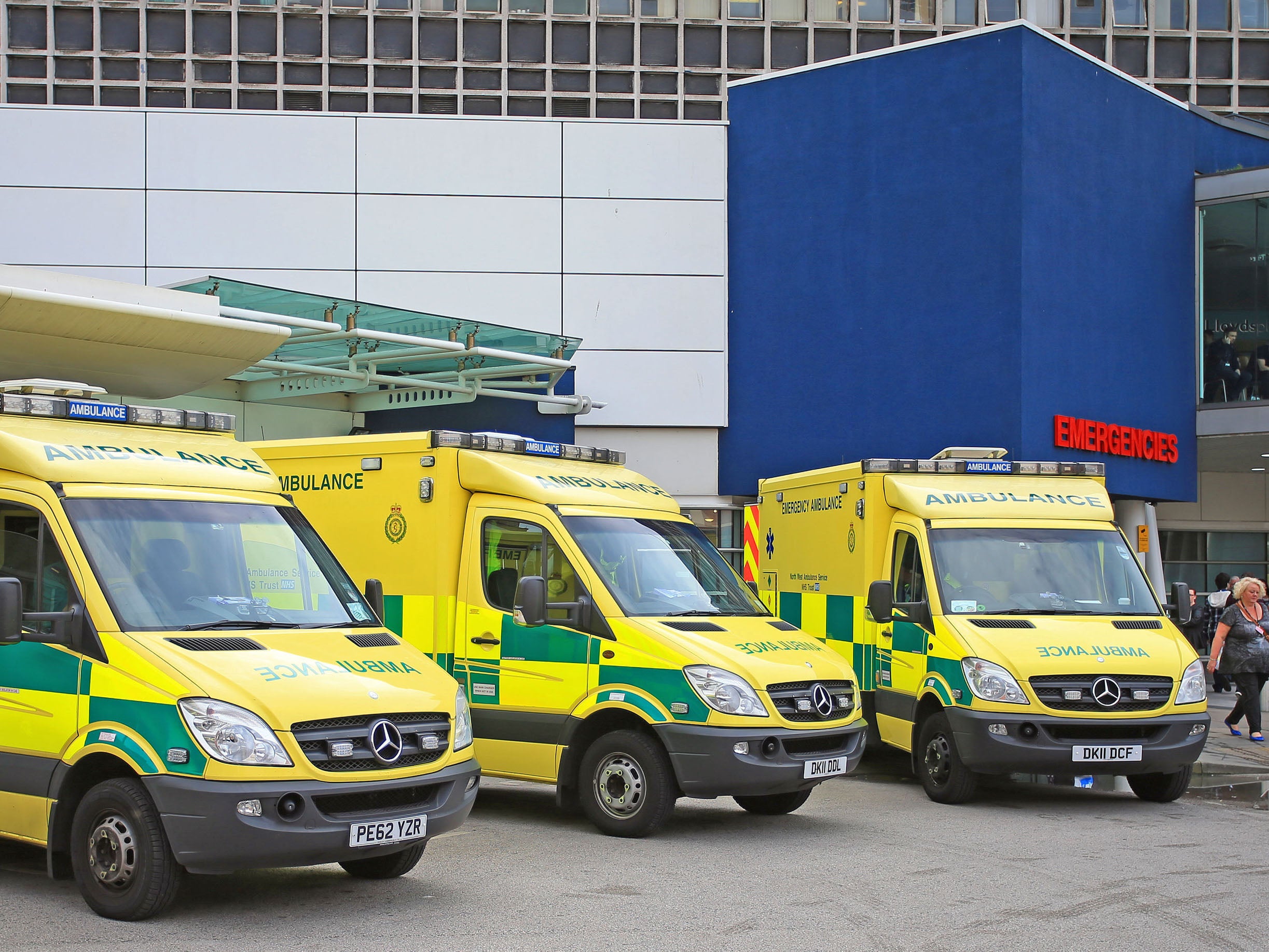Union slams ‘reckless’ demands on ambulance service during junior doctor strikes
Ambulance service workers already face 'unprecedented demands on their time', Rehana Azam, NHS officer of the GMB, says

Your support helps us to tell the story
From reproductive rights to climate change to Big Tech, The Independent is on the ground when the story is developing. Whether it's investigating the financials of Elon Musk's pro-Trump PAC or producing our latest documentary, 'The A Word', which shines a light on the American women fighting for reproductive rights, we know how important it is to parse out the facts from the messaging.
At such a critical moment in US history, we need reporters on the ground. Your donation allows us to keep sending journalists to speak to both sides of the story.
The Independent is trusted by Americans across the entire political spectrum. And unlike many other quality news outlets, we choose not to lock Americans out of our reporting and analysis with paywalls. We believe quality journalism should be available to everyone, paid for by those who can afford it.
Your support makes all the difference.Asking the ambulance service to run temporary treatment centres during next week’s junior doctors’ strike is “reckless”, a senior union officer has said.
After NHS England said ambulance trusts may be required to step in during the first full walk-out in the history of the health service, Rehana Azam, NHS officer of the GMB union, warned “not to overstretch an ambulance service that is already overstretched".
More than 125,000 operations and appointments have been cancelled due to the strike, which is planned to take place on Tuesday and Wednesday. Junior doctors are taking industrial action over a controversial new contract that demands more weekend working.
Unlike in previous strikes, the thousands of striking junior doctors will not provide emergency care.
Ms Azam said: “GMB members in the ambulance service have faced unprecedented demands on their time.
“Responding to emergencies, transferring patients to hospitals is increasingly becoming a challenge as the number of 999 calls continue to increase.
NHS England said the health service was “pulling out all the stops” to minimise the risks during the walk-outs, and has told hospitals they must focus on “essential services” such as A&E, maternity, resuscitation, and mental health crisis intervention.

Patients have been told to expect delays in what NHS England has called a time of “heightened risk”.
Ms Azam said: “The GMB asks the Prime Minister to urgently get round the table to resolve the junior doctors dispute that his Secretary of State for Health created."
She added that the government had "underfunded and fragmented" the NHS.
A record nine million emergency calls were made to 999 last year, an increase of six per cent from the previous year, according to a performance report by the Health and Social Care Information Centre.
Dr Anne Rainsberry, national incident director for NHS England, said the strike was an “unprecedented situation”.
As well as extra support being asked for from ambulance trusts, GPs have increased the number of available appointments and the non-emergency NHS 111 number will be running at an increased capacity.
Earlier this week, the BMA said it would call off the forthcoming strike if Health Secretary Jeremy Hunt lifted his threat to impose the contract on junior doctors. But Mr Hunt said it was not possible to “change or delay” its introduction.
More than 2,500 consultants, GPs and senior doctors have signed a letter to David Cameron and Jeremy Hunt in support of the striking junior doctors.
Join our commenting forum
Join thought-provoking conversations, follow other Independent readers and see their replies
Comments